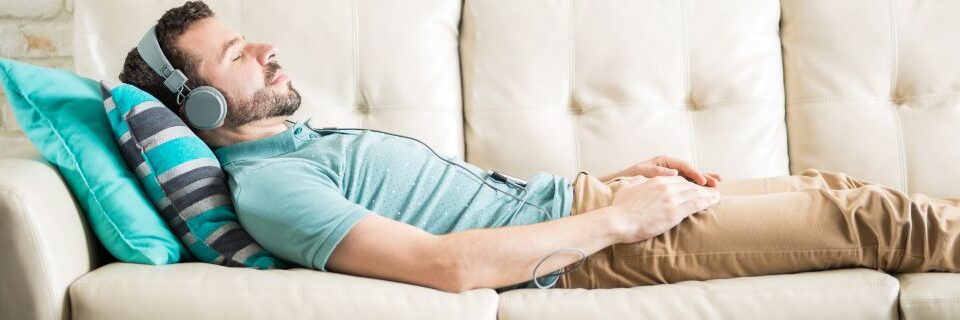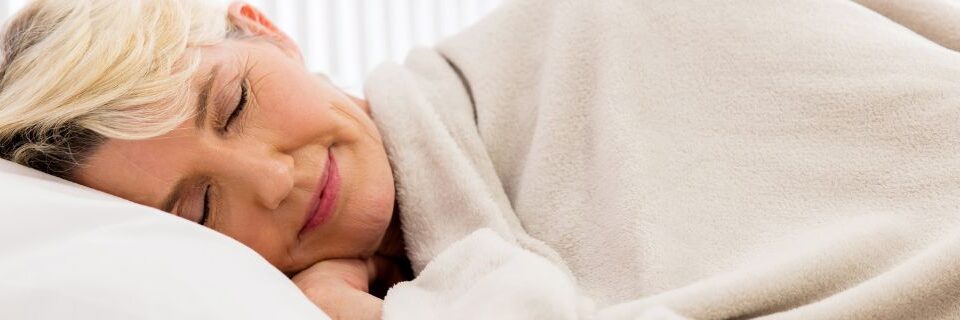
Do You Have Sleep Deprivation? Causes, Symptoms, and Solutions

Trouble Sleeping? Eight Possible Reasons and their Solutions
Table of Contents
When was the last time you had a good night’s sleep? If you are like many people, you might have a hard time remembering. About 60 percent of us struggle to get the sleep we need. That number rises for some populations, and only about half of older adults, people with medical or mental health problems, and women can sleep soundly.
Whether you struggle to fall asleep, stay asleep all night, or wake up too early, your wellbeing might be at risk. Without deep sleep, you may be prone to depression, weight gain, lower quality of life, and other potentially serious health issues. If you are considering a natural sleep aid, here is what you need to know to get the sleep you crave.
What Are Natural Sleep Supplements?
A natural aid is a product that can help you get more sleep. Unlike conventional sleep medications, natural sleep supplements are typically plant-derived or are designed to mimic naturally occurring chemicals in the body. Natural aids are not necessarily regulated the same way prescription medications are and might be considered dietary supplements. Their effectiveness is not always fully understood or proven, which means that consumers are often left guessing about whether a specific supplement or aid will help them get the deep sleep they need.
Sleep Supplements: Safety and Effectiveness
Not all natural supplements are safe or effective, and some can even be harmful. Users may experience allergic or adverse reactions. Interactions can occur between supplements and certain over-the-counter or prescription medications. In some cases, dosages for specific users are unknown or poorly understood. Occasionally, supplements may even be mislabeled, which means that users are not getting the dose or type of herb they expected.
Despite the potential issues, most over-the-counter natural sleep remedies have a neutral reputation, meaning they are considered neither safe nor unsafe for everyone across the board. This means that most healthy adults can safely use a sleep supplement after discussing their options and needs with a qualified medical professional. Others might need to proceed with caution depending on their health needs.
If you are interested in using a sleep supplement, talk to your doctor, who may review your other medications and supplements, evaluate your sleep concerns, and help you find the right natural treatment for your needs.

Types of Sleep Supplements
Two common sleep supplements are melatonin and valerian. Melatonin is naturally produced by your body in response to changes in light. It promotes healthy sleep and keeps the circadian system balanced. Melatonin can be synthetically produced and ingested to regulate your sleep naturally and is considered an effective first-line sleep treatment for older adults. It can also be effective for addressing jet lag. Side effects are not common but can include headaches, daytime sleepiness, and dizziness.
Valerian works differently. This herb, native to Asia and Europe, has a long history of use as a sleep supplement, dating back more than 2,000 years to the Ancient Greeks. It helps calm and relax you so that you can get better sleep. For most people, using valerian for short periods is considered safe. Side effects can include slowed thinking, stomach upset, and headaches.
Melatonin and valerian are the best-known and most commonly used sleep supplements. While other sleep supplements are available, their effectiveness and safety have not been as well-studied.
They include:
- Magnesium, which is a mineral that promotes healthy body function and may help older adults sleep better but can be associated with stomach discomfort and diarrhea
- Tryptophan, which is an amino acid found in food that helps support natural melatonin production
- Chamomile, which is a plant that may have calming effects but can trigger allergic reactions, particularly in those who are allergic to ragweed, marigolds, and daisies
- Ginkgo Biloba, which comes from a tree and may help calm anxiety but can be associated with drug interactions and can trigger heart palpitations or dizziness
- Lavender, which is a flowering plant that is often used in aromatherapy treatments and can calm your mind and promote sleep
Some supplements blend a variety of these and other natural ingredients. The stated goal is to enhance sleep through the synergistic effects of herbs or other compounds.
Quality Sleep through Natural Supplements
Adding a sleep supplement to your evening routine might just be what you need to overcome insomnia and other sleep disruptions. However, supplements might be most effective when included as a part of an overall sleep strategy that addresses sleep hygiene, diet, and other factors that can affect your rest. For the best results, talk to a medical professional to avoid unwanted side effects, medication interactions, or other unwanted results before taking a new supplement.
UpNow Health only uses high-quality sources, including peer-reviewed articles, to support the facts within our articles. All our articles are reviewed by experts to ensure that our content is accurate, helpful, and trustworthy.
1. Abbasi, B., Kimiagar, M., Sadeghniiat, K., Shirazi, M. M., Hedayati, M., & Rashidkhani, B. (2012). The effect of magnesium supplementation on primary insomnia in elderly: A double-blind placebo-controlled clinical trial. Journal of Research in Medical Sciences : The Official Journal of Isfahan University of Medical Sciences, 17(12), 1161–1169. https://www.ncbi.nlm.nih.gov/pubmed/23853635
2. Are you sleeping enough? This infographic shows how you compare to the rest of the world. (n.d.). World Economic Forum. Retrieved December 15, 2021, from https://www.weforum.org/agenda/2019/08/we-need-more-sleep
3. Bent, S., Padula, A., Moore, D., Patterson, M., & Mehling, W. (2006). Valerian for Sleep: A Systematic Review and Meta-Analysis. The American Journal of Medicine, 119(12), 1005–1012. https://doi.org/10.1016/j.amjmed.2006.02.026
4. Bhaskar, S., Hemavathy, D., & Prasad, S. (2016). Prevalence of chronic insomnia in adult patients and its correlation with medical comorbidities. Journal of Family Medicine and Primary Care, 5(4), 780. https://doi.org/10.4103/2249-4863.201153
5. Bliwise, D. L., & Ansari, F. P. (2007). Insomnia associated with valerian and melatonin usage in the 2002 National Health Interview Survey. Sleep, 30(7), 881–884. https://doi.org/10.1093/sleep/30.7.881E, M., & Bl, H. (2017, July 1). Insomnia: Pharmacologic Therapy. American Family Physician. https://pubmed.ncbi.nlm.nih.gov/28671376/
6. Grigg-Damberger, M. M., & Ianakieva, D. (2017). Poor Quality Control of Over-the-Counter Melatonin: What They Say Is Often Not What You Get. Journal of Clinical Sleep Medicine, 13(02), 163–165. https://doi.org/10.5664/jcsm.6434
7. Gupta, S. (2010). Chamomile: A herbal medicine of the past with a bright future (Review). Molecular Medicine Reports, 3(6). https://doi.org/10.3892/mmr.2010.377
8. Hu, Z., Oh, S., Ha, T.-W., Hong, J.-T., & Oh, K.-W. (2018). Sleep-Aids Derived from Natural Products. Biomolecules & Therapeutics, 26(4), 343–349. https://doi.org/10.4062/biomolther.2018.099
9. Koulivand, P. H., Khaleghi Ghadiri, M., & Gorji, A. (2013). Lavender and the Nervous System. Evidence-Based Complementary and Alternative Medicine, 2013, 1–10. https://doi.org/10.1155/2013/681304
10. Melatonin: What You Need To Know. (2021, January). NCCIH. https://www.nccih.nih.gov/health/melatonin-what-you-need-to-know
11. Murray, B. J., Cowen, P. J., & Sharpley, A. L. (2001). The Effect of Li 1370, Extract of Ginkgo biloba, on REM Sleep in Humans. Pharmacopsychiatry, 34(4), 155–157. https://doi.org/10.1055/s-2001-15876
12. Petre, A. (2017, August 20). 9 Natural Sleep Aids That Are Backed by Science. Healthline; Healthline Media. https://www.healthline.com/nutrition/sleep-aidsTryptophan: MedlinePlus Medical Encyclopedia. (2013). Medlineplus.gov. https://medlineplus.gov/ency/article/002332.htm
13. Taylor, D. J., Mallory, L. J., Lichstein, K. L., Durrence, H. H., Riedel, B. W., & Bush, A. J. (2007). Comorbidity of chronic insomnia with medical problems. Sleep, 30(2), 213–218. https://doi.org/10.1093/sleep/30.2.213
14. Buysse, D. J., Angst, J., Gamma, A., Ajdacic, V., Eich, D., & Rössler, W. (2008). Prevalence, course, and comorbidity of insomnia and depression in young adults. Sleep, 31(4), 473–480. https://doi.org/10.1093/sleep/31.4.473











